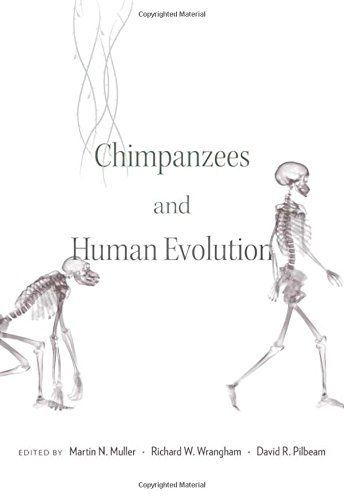

Most ebook files are in PDF format, so you can easily read them using various software such as Foxit Reader or directly on the Google Chrome browser.
Some ebook files are released by publishers in other formats such as .awz, .mobi, .epub, .fb2, etc. You may need to install specific software to read these formats on mobile/PC, such as Calibre.
Please read the tutorial at this link. https://ebooknice.com/page/post?id=faq
We offer FREE conversion to the popular formats you request; however, this may take some time. Therefore, right after payment, please email us, and we will try to provide the service as quickly as possible.
For some exceptional file formats or broken links (if any), please refrain from opening any disputes. Instead, email us first, and we will try to assist within a maximum of 6 hours.
EbookNice Team

Status:
Available5.0
21 reviewsKnowledge of chimpanzees in the wild has expanded dramatically in recent years. This comprehensive volume, edited by Martin Muller, Richard Wrangham, and David Pilbeam, brings together scientists who are leading a revolution to discover and explain what is unique about humans, by studying their closest living relatives. Their observations and conclusions have the potential to transform our understanding of human evolution.
Chimpanzees offer scientists an unmatched view of what distinguishes humanity from its apelike ancestors. Based on evidence from the hominin fossil record and extensive morphological, developmental, and genetic data, Chimpanzees and Human Evolution makes the case that the last common ancestor of chimpanzees and humans was chimpanzee-like. It most likely lived in African rainforests around eight million years ago, eating fruit and walking on its knuckles. Readers will learn why chimpanzees are a better model for the last common ancestor than bonobos, gorillas, or orangutans. A thorough chapter-by-chapter analysis reveals which key traits we share with chimpanzees and which appear to be distinctive to Homo sapiens, and shows how understanding chimpanzees helps us account for the evolution of human uniqueness. Traits surveyed include social behaviors and structures, mating systems, diet, hunting practices, tool use, culture, cognition, and communication.
Edited by three of primatology’s most renowned experts, with contributions from 32 scholars drawing on decades of field research, Chimpanzees and Human Evolution provides readers with detailed up-to-date information on what we can infer about our chimpanzee-like ancestors and points the way forward for the next generation of discoveries.